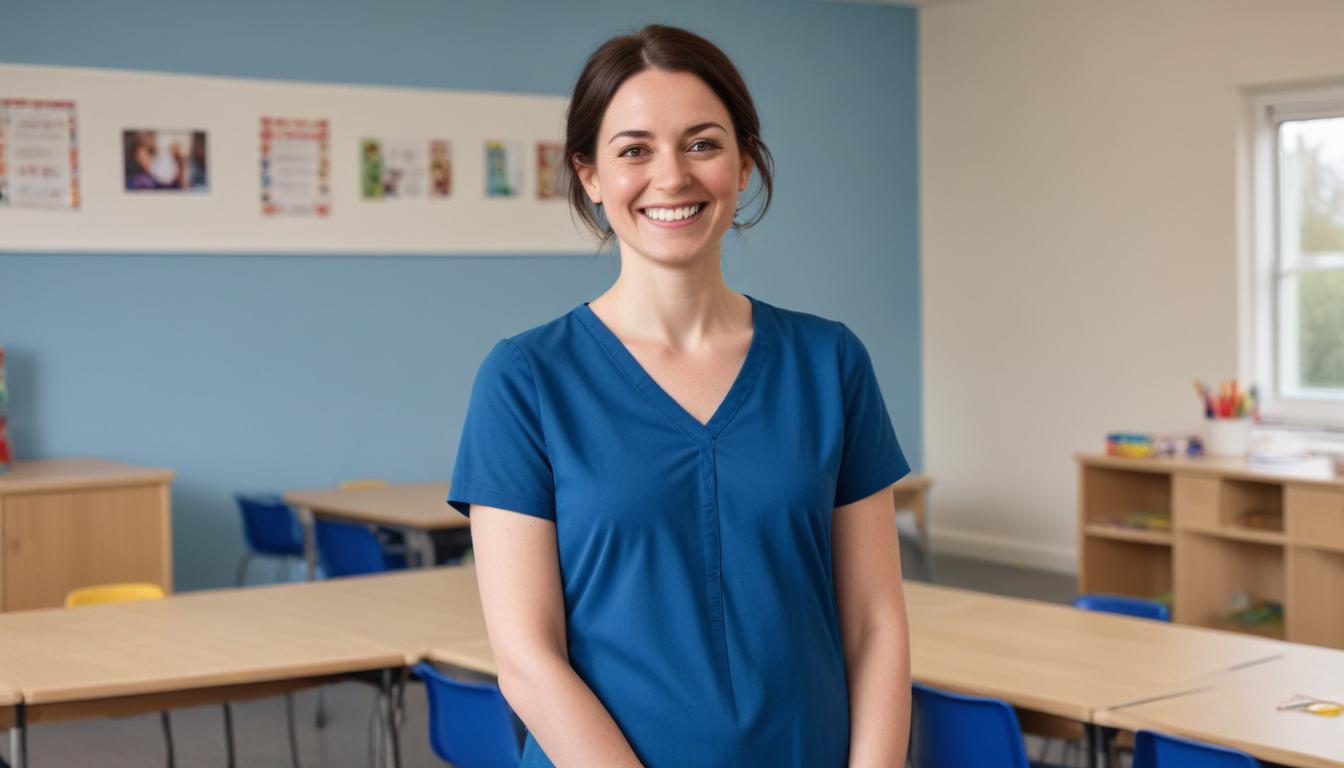
This guide will help you answer 1.1. Give ways to value children as individuals.
Valuing children as individuals is a key principle in early years settings. Each child is unique, with their own interests, likes, dislikes, and developmental needs. Recognising and respecting these differences is important in nurturing their confidence and self-esteem.
In this guide, we cover several ways to achieve this:
Listening Actively
Listening is essential when working with children. It shows them you value their thoughts and feelings. Active listening involves:
- Making eye contact
- Giving children your full attention
- Nodding or using verbal acknowledgments like “I see” or “Tell me more”
This process helps children feel heard and important. Encourage them to express their ideas without fear of judgement.
Providing Choice
Children should have some say in their activities. Offering choices allows them to develop preferences and decision-making skills. These can include:
- Choosing which game to play
- Picking a story to read
- Deciding the order of tasks
Providing choices shows that their opinions matter. It also fosters independence and self-confidence as they learn to make decisions.
Personalised Learning
Personalised learning involves tailoring activities to fit individual learning styles and interests. This approach can include:
- Adapting lesson plans for different learning paces
- Incorporating a child’s hobby into learning activities
By personalising learning, you meet each child’s needs, which supports their educational development and satisfaction with their learning environment.
Celebrating Achievements
Recognising and celebrating what children accomplish boosts their self-esteem. Achievements don’t always have to be in academic tasks; they can be in social skills or creative efforts, too. Ways to celebrate include:
- Displaying their artwork
- Praising their participation in group tasks
- Sharing their achievements with parents
Celebrating their successes shows that their efforts are valued and encourages them to continue trying hard.
Respecting their Pace
Children develop at different rates, and it’s crucial to respect and support their individual pace. Avoid comparing children to others. Instead, focus on their own progress and development. Strategies include:
- Offering help when needed, but allowing them to try first
- Encouraging them to explore and learn at their comfort level
By valuing their unique pace, you help children feel safe and supported in their learning journey.
Understanding Cultural Backgrounds
Cultural background influences a child’s identity. Understanding and respecting diverse cultures helps children feel included. Practical steps to value cultural differences include:
- Celebrating cultural festivals
- Introducing books and resources that reflect various cultures
- Encouraging children to share their cultural experiences
In this way, you promote a diverse and inclusive environment, which is essential for children to feel valued as individuals.
Involving Children in Planning
Involve children in the planning of activities. This enables them to take ownership of their experience and convey what they find engaging. Methods include:
- Asking for their opinions on upcoming activities
- Allowing them to contribute ideas
By involving children, you respect their viewpoint and make their experiences more meaningful and enjoyable.
Providing Feedback
Offering constructive feedback rather than criticism is another essential aspect. Feedback should be specific and focused on effort and improvement. Examples include:
- “I see you worked really hard on that puzzle. Well done!”
- “Your effort is improving every day. Keep it up!”
Focused feedback supports children’s growth and helps them understand that their hard work is noticed and appreciated.
Encouraging Emotional Expression
Children should feel safe to express their emotions. Valuing their emotional experiences helps them develop emotional intelligence. Encourage emotional expression by:
- Validating their feelings: “It seems like you’re feeling sad.”
- Creating a calming area where they can retreat
Helping children navigate their emotions leads to better emotional health and fosters healthy communication.
Creating Individual Profiles
An individual child profile helps you gather detailed information about each child. This aids in recognising their unique characteristics. These profiles can include:
- Interests and dislikes
- Family background
- Favourite activities
Profiles are invaluable tools for personalising care and educational strategies, ensuring each child feels individually valued.
Recognising and Overcoming Bias
Every practitioner should strive to recognise and overcome any personal biases. This means treating each child fairly and equally, regardless of race, gender, or ability. Strategies to overcome bias include:
- Regular self-reflection on your own perceptions
- Seeking professional development on diversity and inclusion
- Ensuring a diverse range of activities and materials
By acknowledging and challenging personal biases, you lay the groundwork for an equitable environment where each child is valued as the unique person they are.
Using Positive Language
Your choice of words impacts how children perceive themselves. Positive language supports confidence and respect. Instead of saying “Don’t run,” say:
- “Let’s walk inside to stay safe.”
Positive language guides children gently and reinforces positive behaviour without making them feel misunderstood or undervalued.
Encouraging Peer Interactions
Facilitate opportunities for children to interact positively with their peers. Social interactions are essential for children’s development and their sense of belonging. Encourage children to:
- Share toys and materials
- Engage in group activities
- Participate in cooperative games
Through peer interactions, children learn empathy and respect, valuing not only themselves but each other too.
Acknowledging Their Autonomy
Children should learn about their independence and autonomy in making choices and doing tasks. Recognise and encourage their capability to do things for themselves. Acknowledge moments when they:
- Dress themselves successfully
- Tidy up their play area
When you value children’s autonomy, you affirm their self-worth and ability, which strengthens their development as individuals.
Providing Safe and Nurturing Environments
Children thrive in environments where they feel safe and nurtured. Safety involves both physical and emotional aspects, providing:
- A clean and hazard-free play area
- Emotional security where they can express themselves freely without fear
A safe environment assures children they matter, building a solid foundation for learning and exploration.
Regular Engagement with Parents and Caregivers
Engaging with a child’s family is a wonderful way to value them as individuals. Communicate regularly with parents to understand the child’s life outside the setting. Use observations and updates to:
- Align learning and development goals
- Support any particular needs or interests
Regularly participating with families helps create a consistent and supportive network around the child, showing them that their world is valued in its entirety.
By implementing these thoughtful practices, you convey to children that they matter as individuals. Through respect, encouragement, and personalised care, early years practitioners play a pivotal role in fostering a supportive environment for every unique child.
Subscribe to Newsletter
Get the latest news and updates from Care Learning and be first to know about our free courses when they launch.




